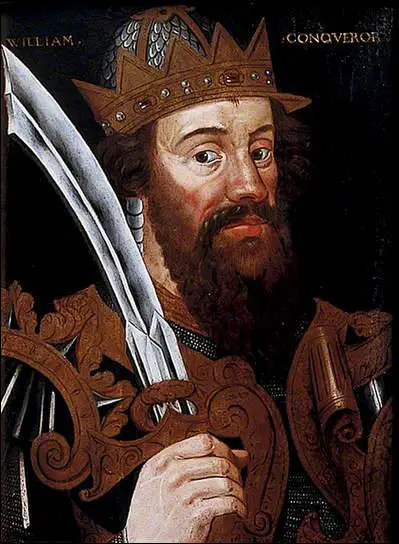Classroom Activity : William the Conqueror
The Normans were in poor shape after the Battle of Hastings. However, the English forces lacked a leader. Harold of Wessex and his brothers were dead and Edgar Etheling was only a teenager.
On his way to London the Norman leader, William the Conqueror, burnt and looted the villages he passed through. London was well protected and instead of trying to take the capital he went on the rampage in Surrey, Hampshire and Berkshire.
Leading figures in England arranged a meeting with William and offered to accept him as their king if he would stop his campaign of destruction. William agreed and he was crowned king on 25 December, 1066.
William did not keep his promise and Norman soldiers continued to loot and rape without punishment. The land and wealth of England was distributed amongst the knights who had fought on the side of the Normans. In return for the support the pope had given him in his campaign, William dispatched large cargoes of gold to churches in Europe.
Primary Sources

(Source 2) Anglo-Saxon Chronicle, Version E, entry for 1087
King William and the chief men loved... gold and silver and did not care how sinfully it was obtained provided it came to them. He (William) did not care at all how wrongfully his men got possession of land... nor how many illegal acts they did.
(Source 3) In his book Ecclesiastical History, Ordericus Vitalis described what happened after an English rebellion in the winter of 1069. (c. 1142)
In his anger William ordered that all crops and herds... and food of every kind should be brought together and burned to ashes, so that the whole region north of Humber might be stripped of all means of survival.
(Source 4) William of Poitiers, The Deeds of William, Duke of the Normans (c. 1071)
Duke William excelled both in bravery and soldier-craft... He dominated battles, checking his own men in flight, strengthening their spirit, and sharing their dangers.
(Source 5) William of Jumieges, a monk from Caen Abbey in Normandy, wrote about William the Conqueror in 1090.
He never allowed himself to be deterred from any enterprise because of the labour it entailed. He was strong in body and tall in stature... He was moderate in drinking, for he deplored drunkenness in all men. In speech he was fluent and persuasive, being skilled at all times in making clear his will. He followed the Christian discipline in which he had been brought up from childhood, and whenever his health permitted he regularly... attended Christian worship each
morning and evening and at the celebration of mass.
(Source 6) Pope Gregory VII made the following comments about William the Conqueror in a letter to a friend. (1081)
The king of England, though in certain respects he is not as religious as we would wish, still shows himself to be more acceptable than other kings... he neither destroys nor sells the churches of God.. and he bound priests by oath to dismiss their wives.
Questions for Students
Question 1: (i) Select passages from this unit that praise William the Conqueror. (ii) Select passages from this unit that criticise William the Conqueror.
Question 2: Give reasons why different authors had different opinions on William the Conqueror. It will help you to read about the authors by following the links.
Answer Commentary
A commentary on these questions can be found here:
Download Activity
You can download this activity in a word document here
You can download the answers in a word document here
